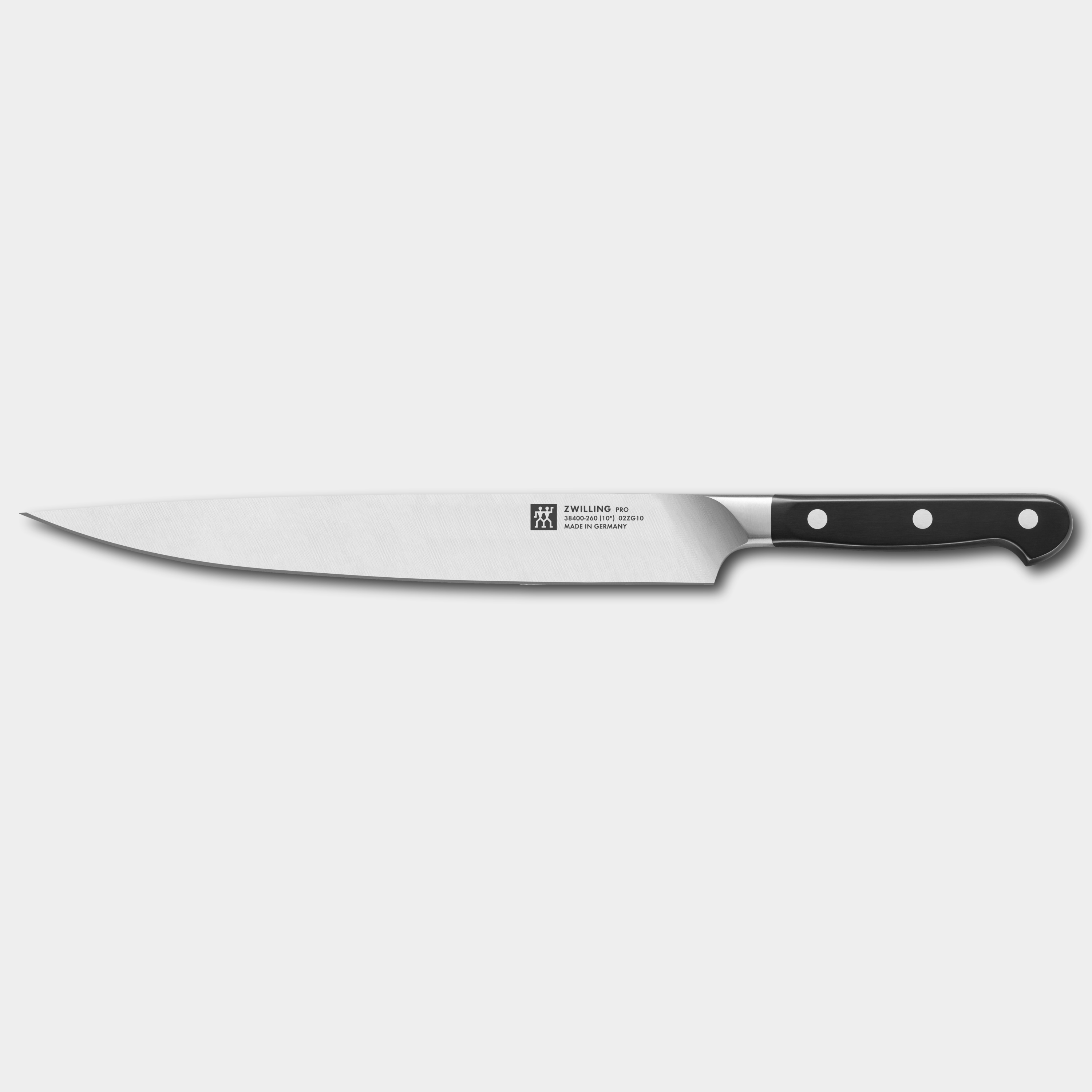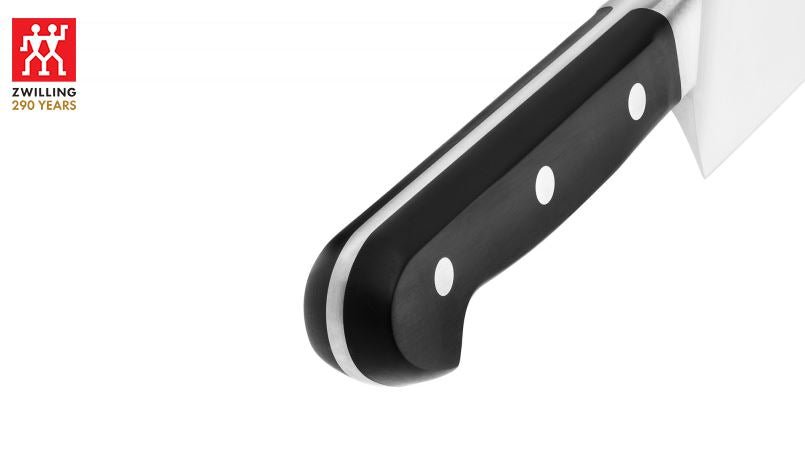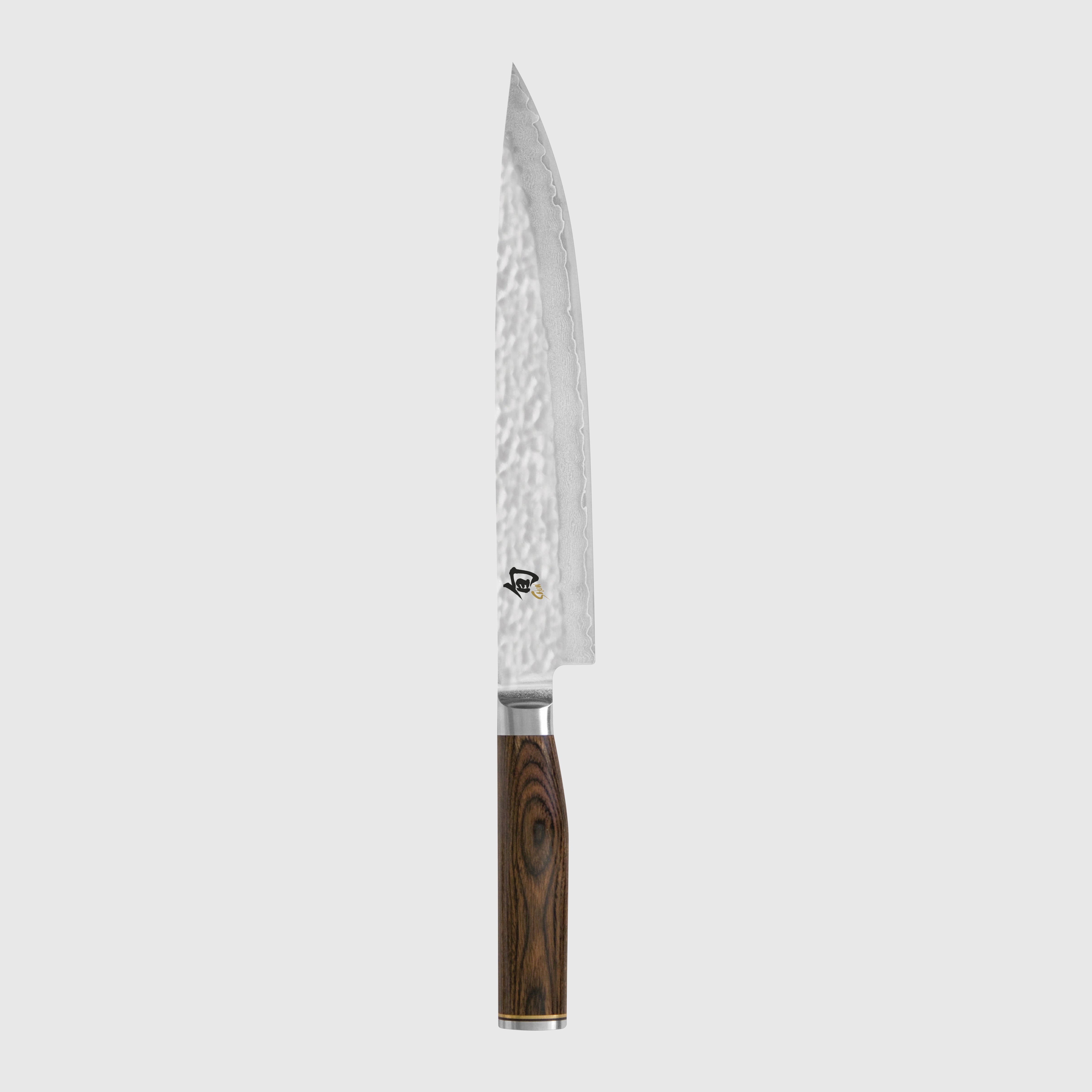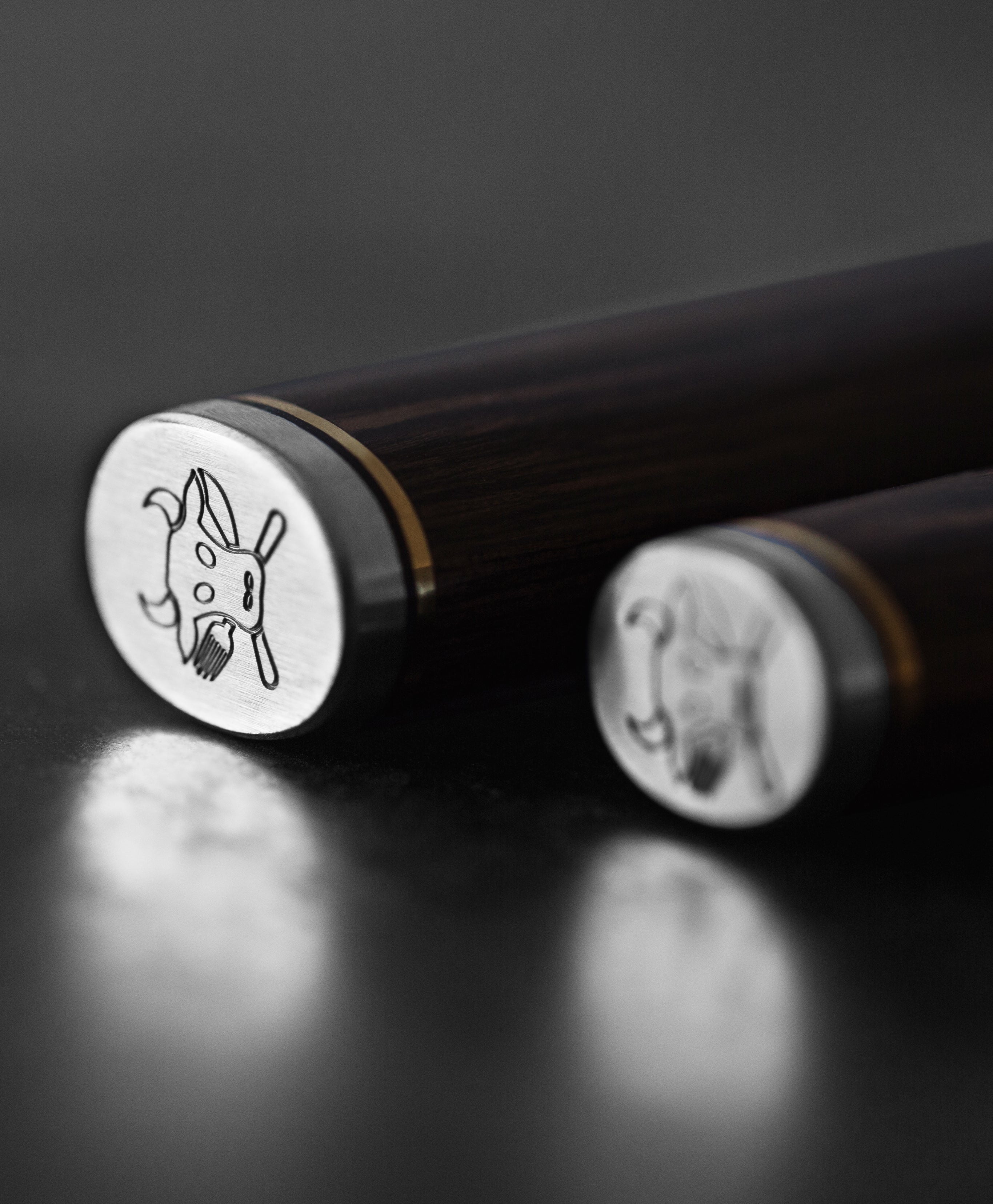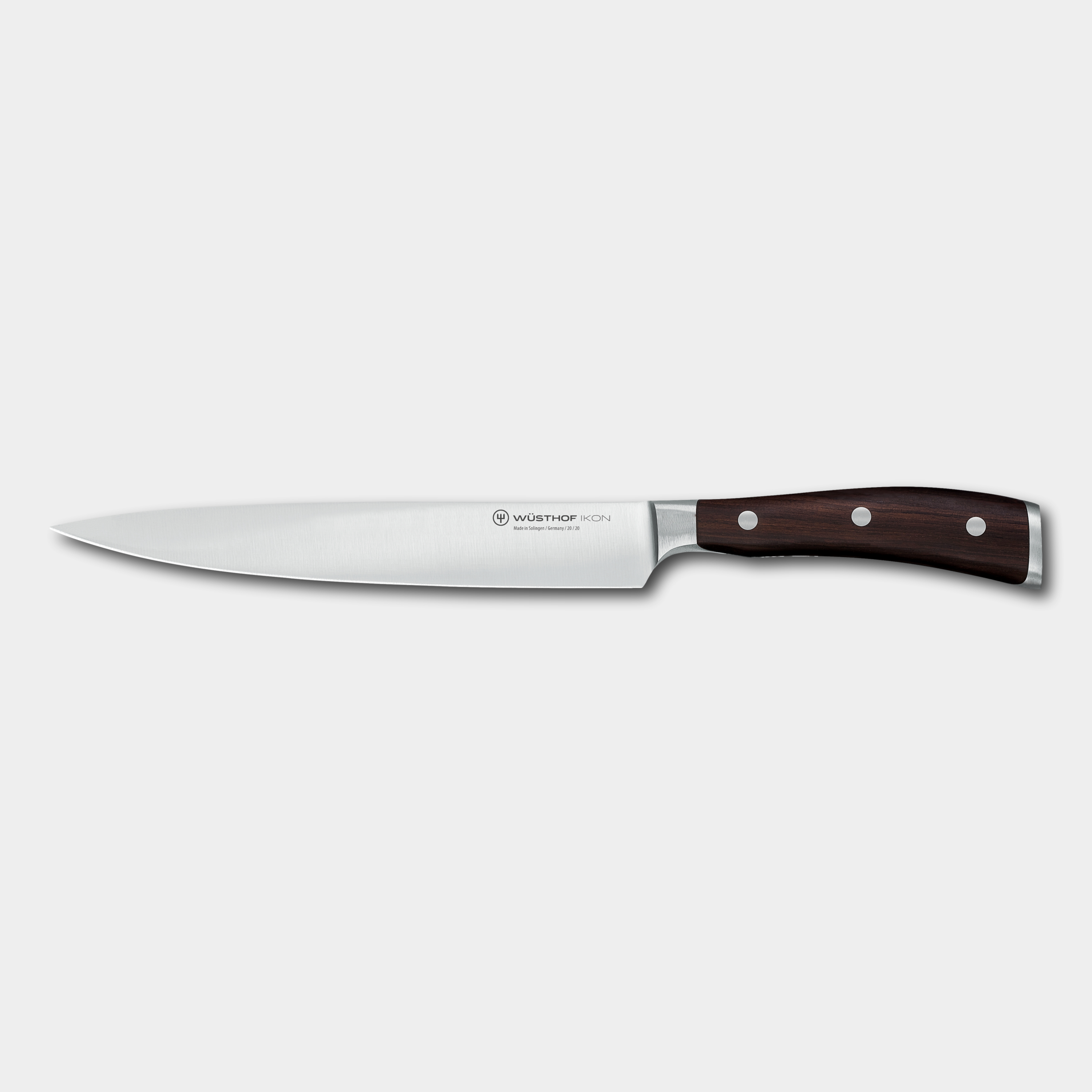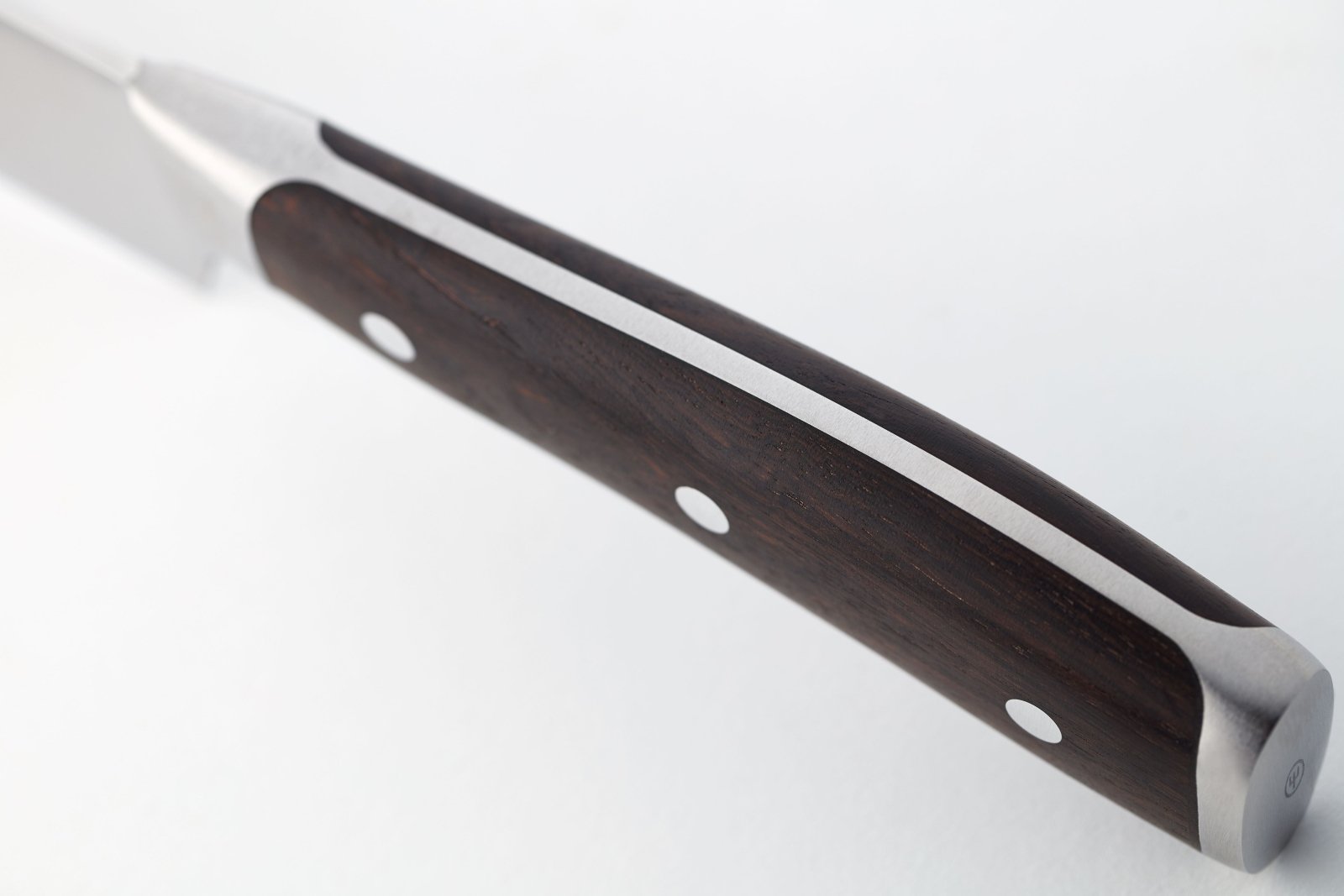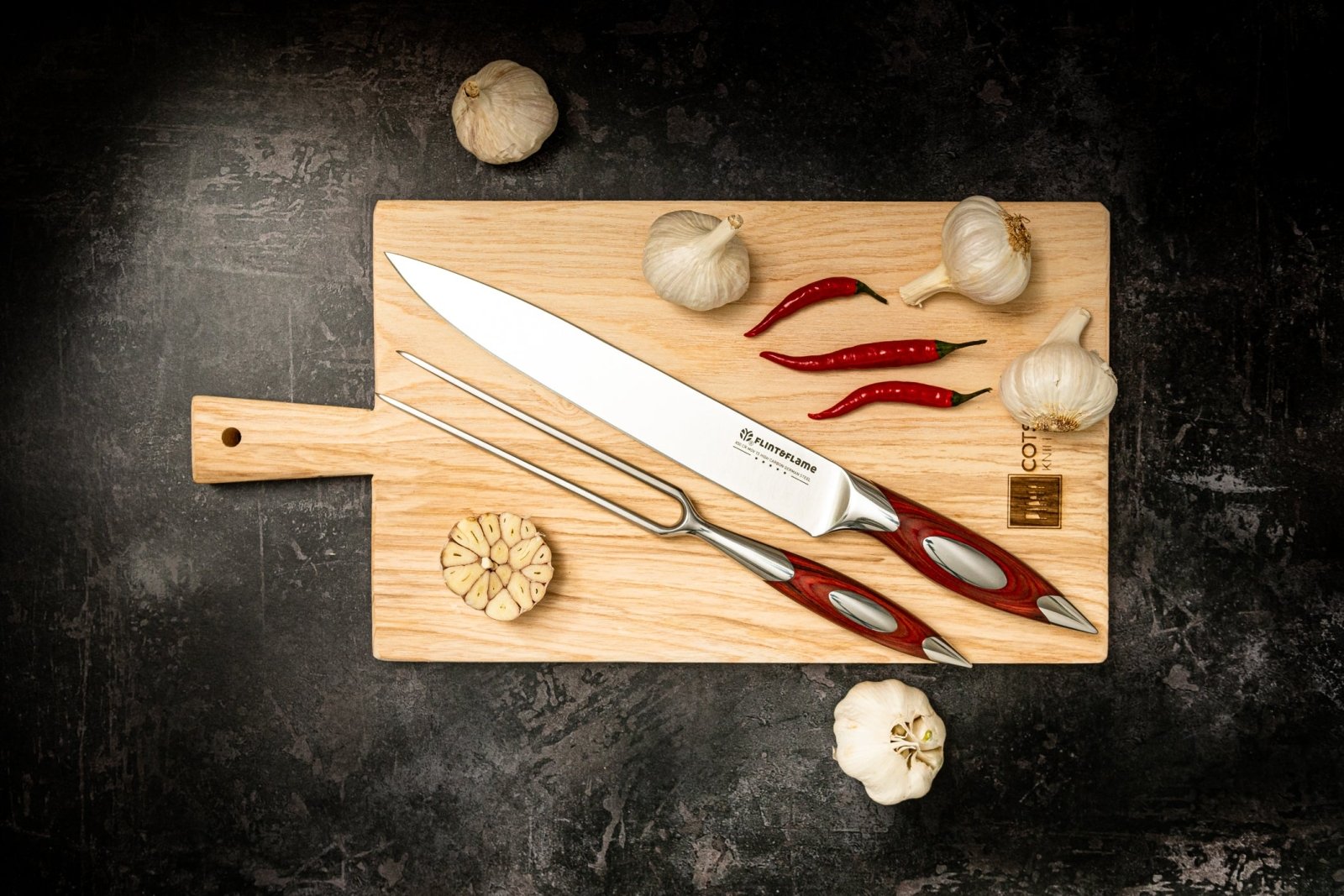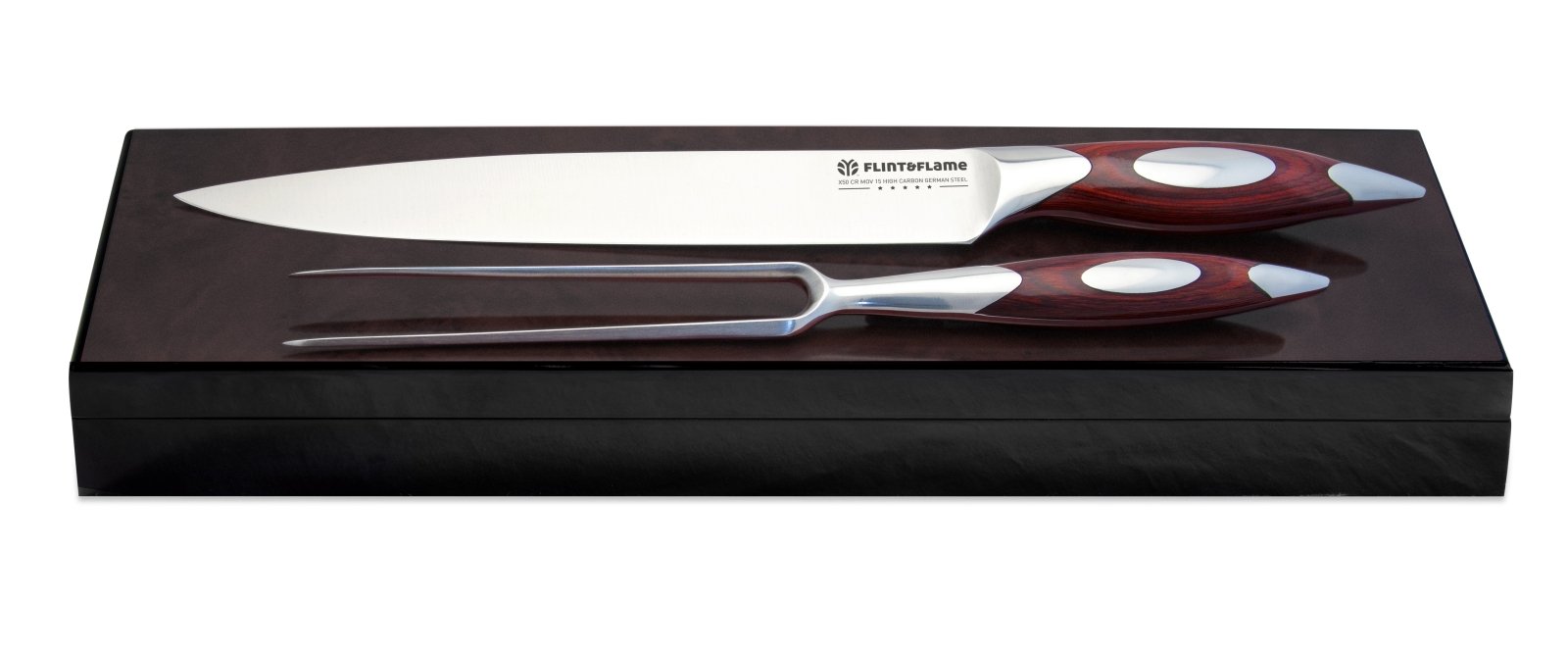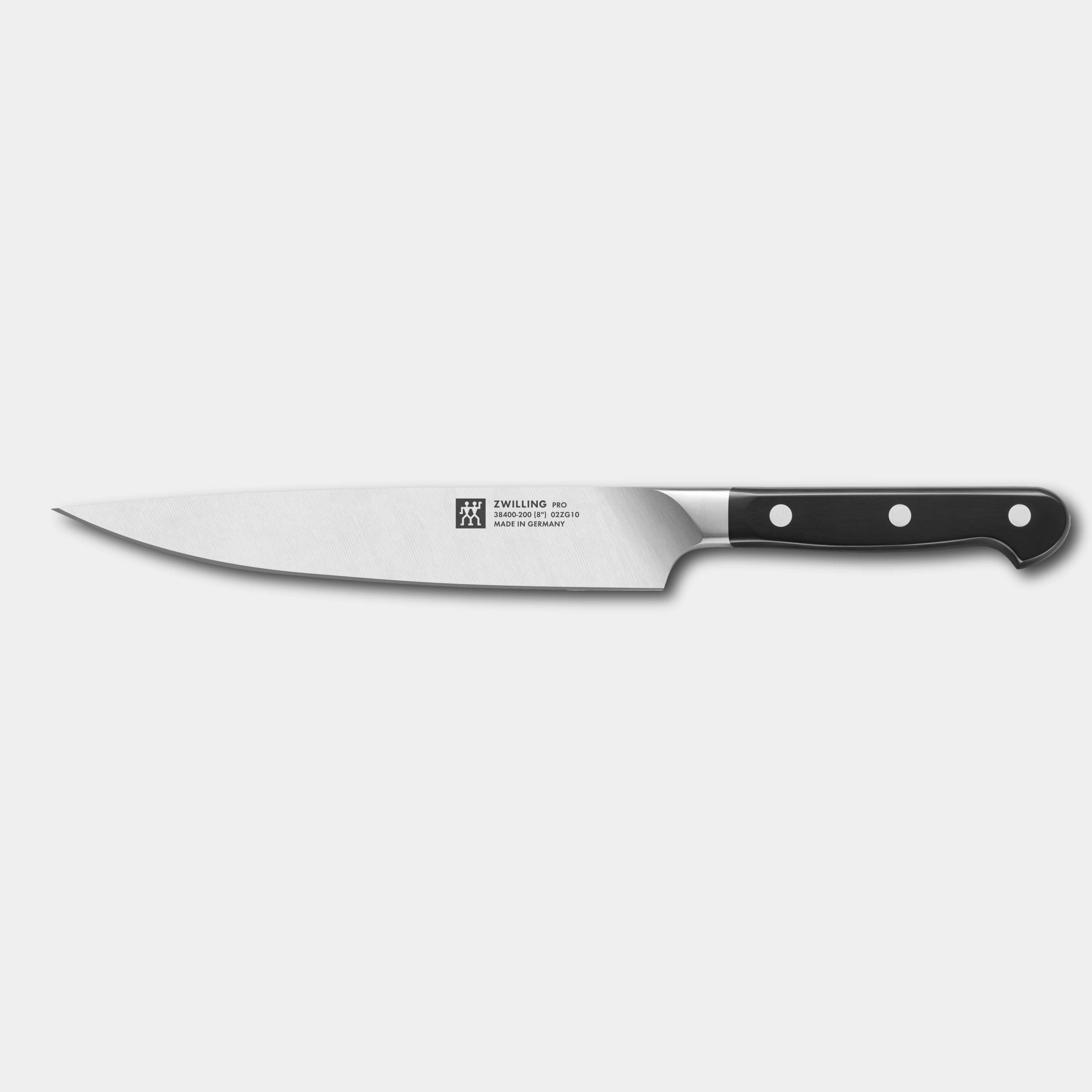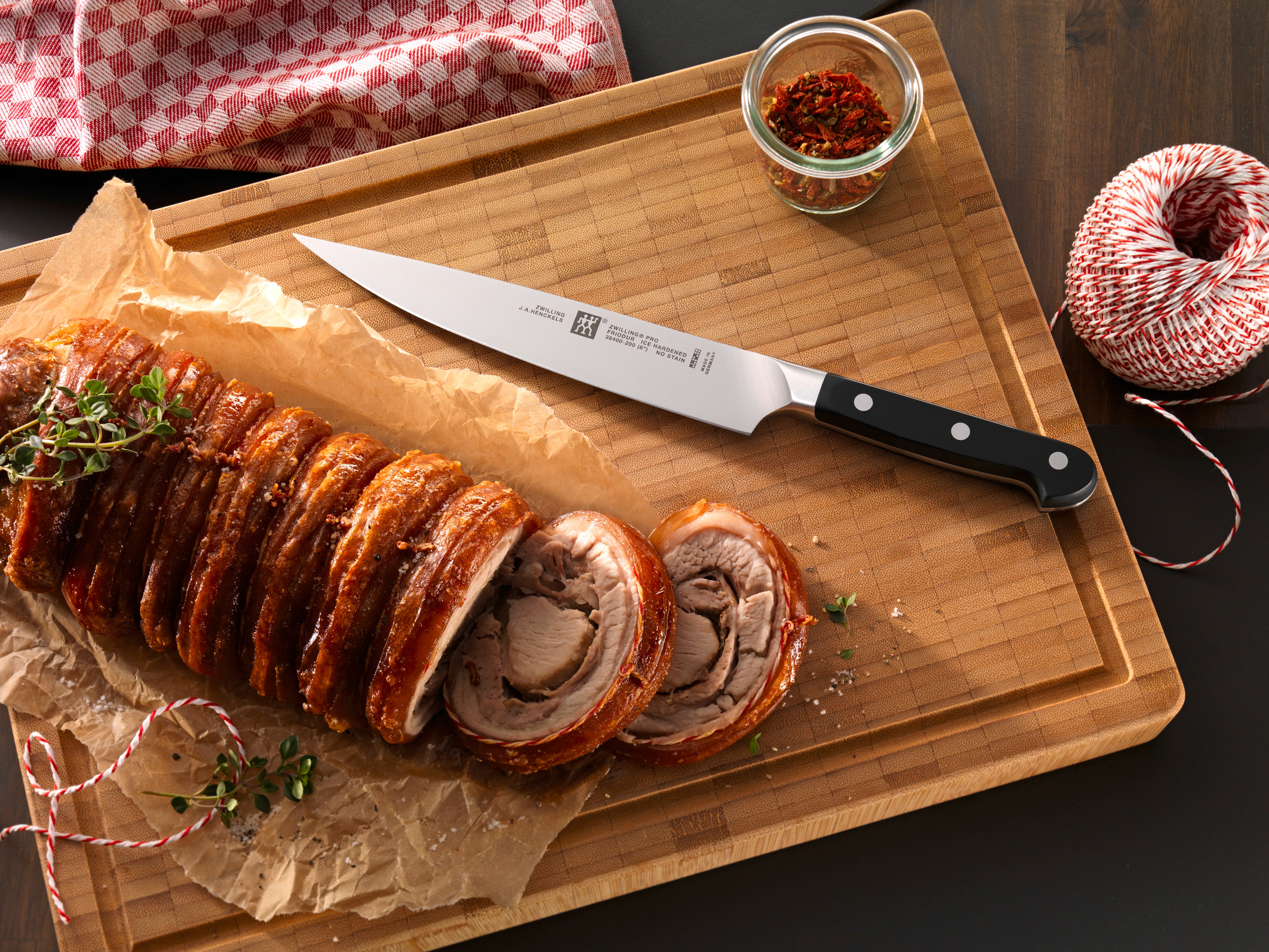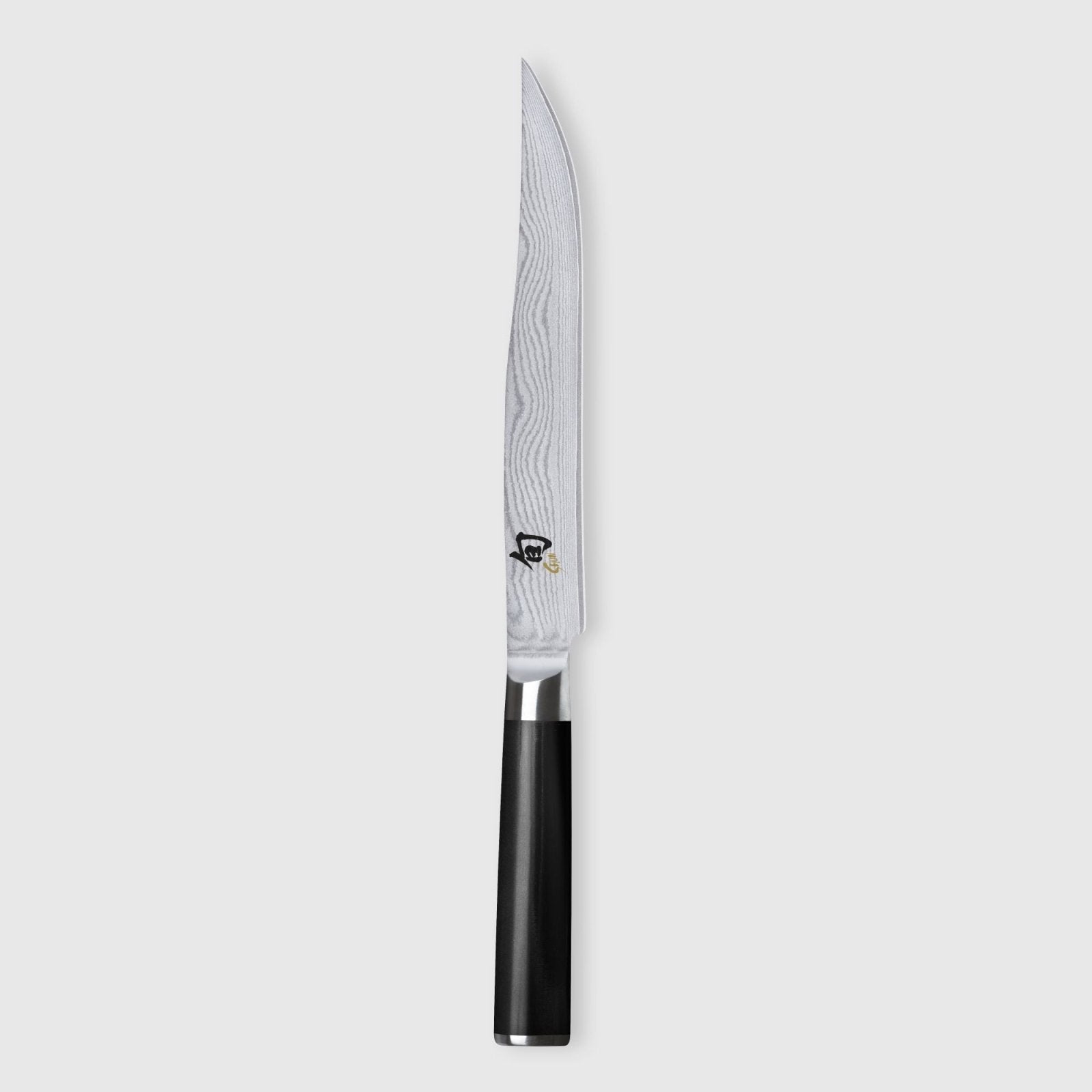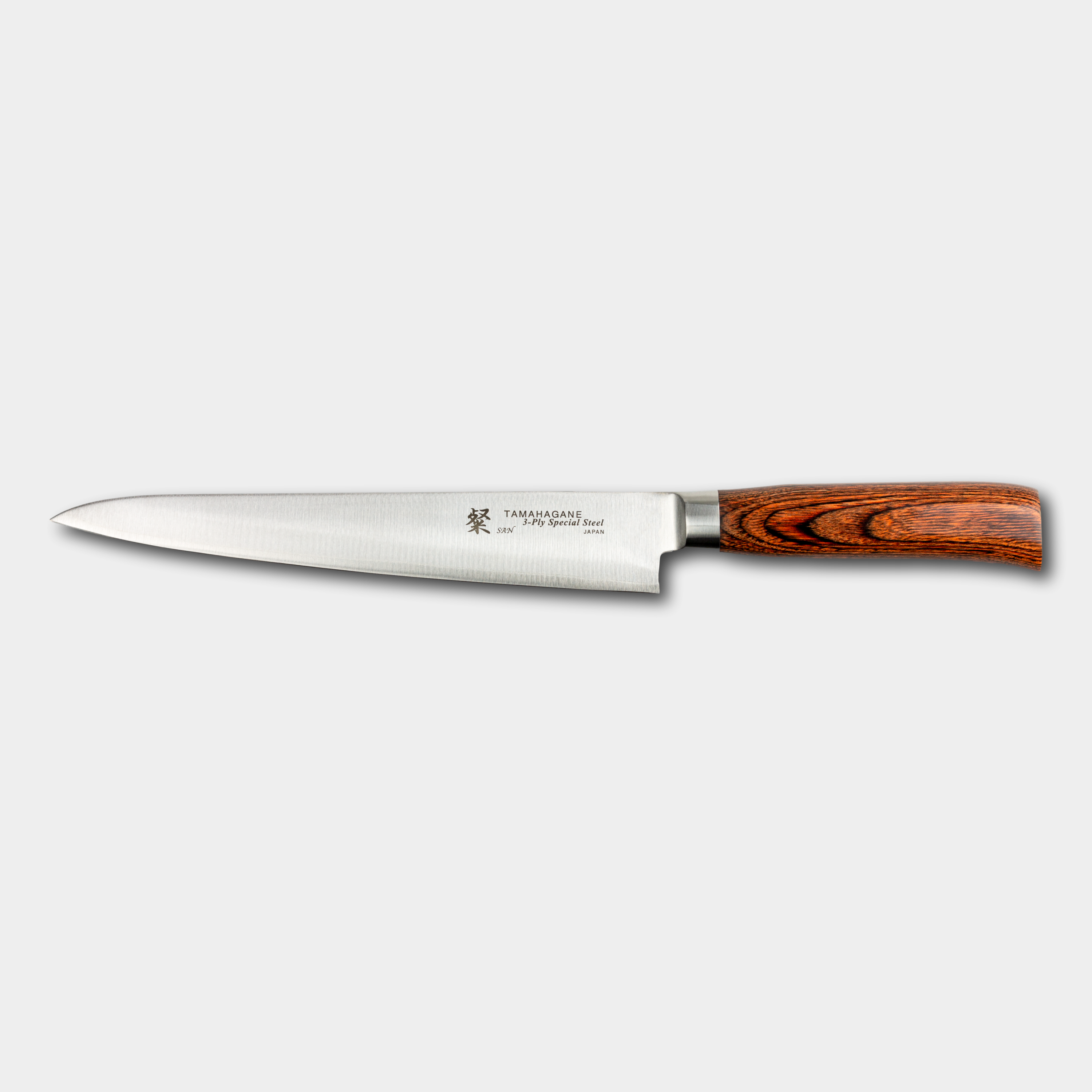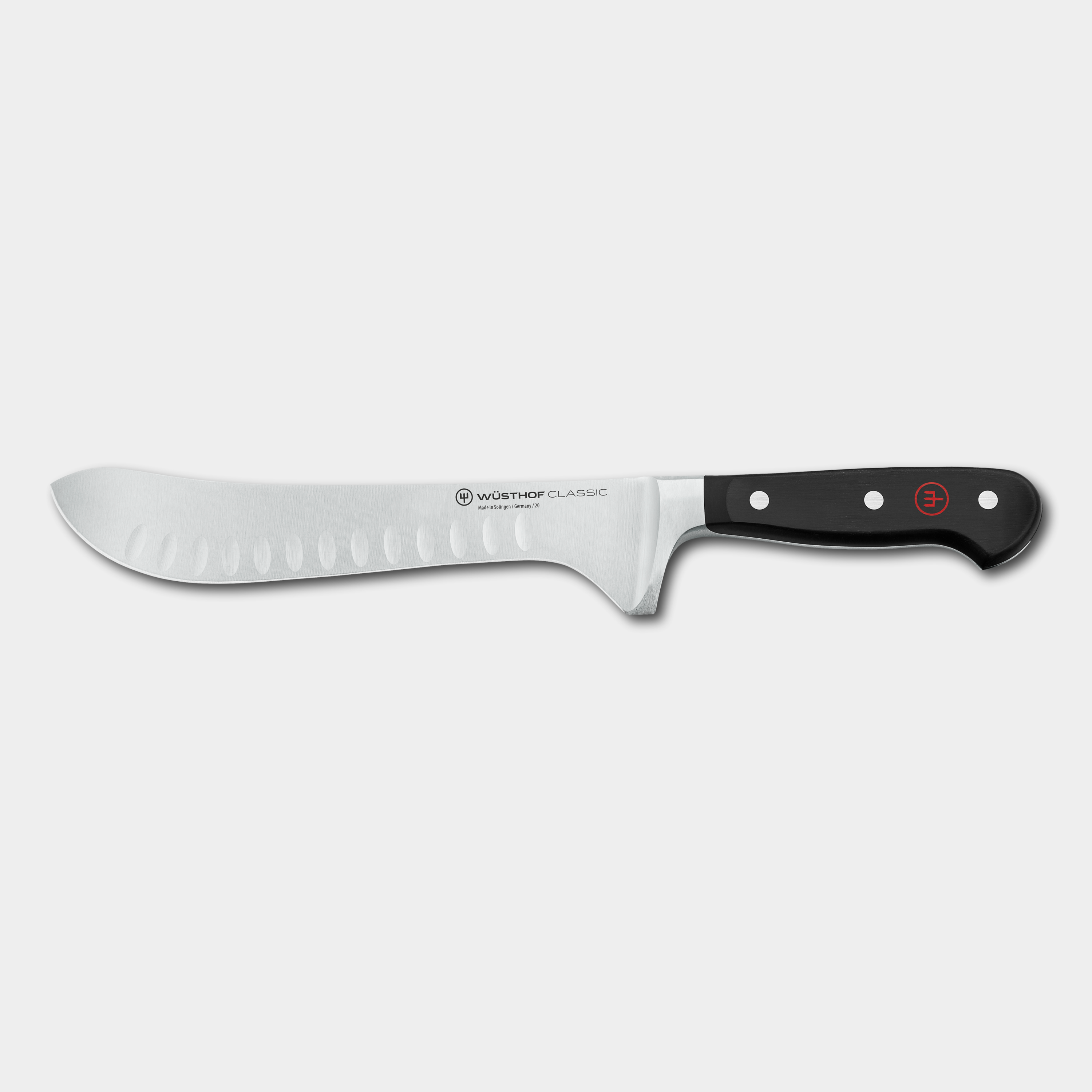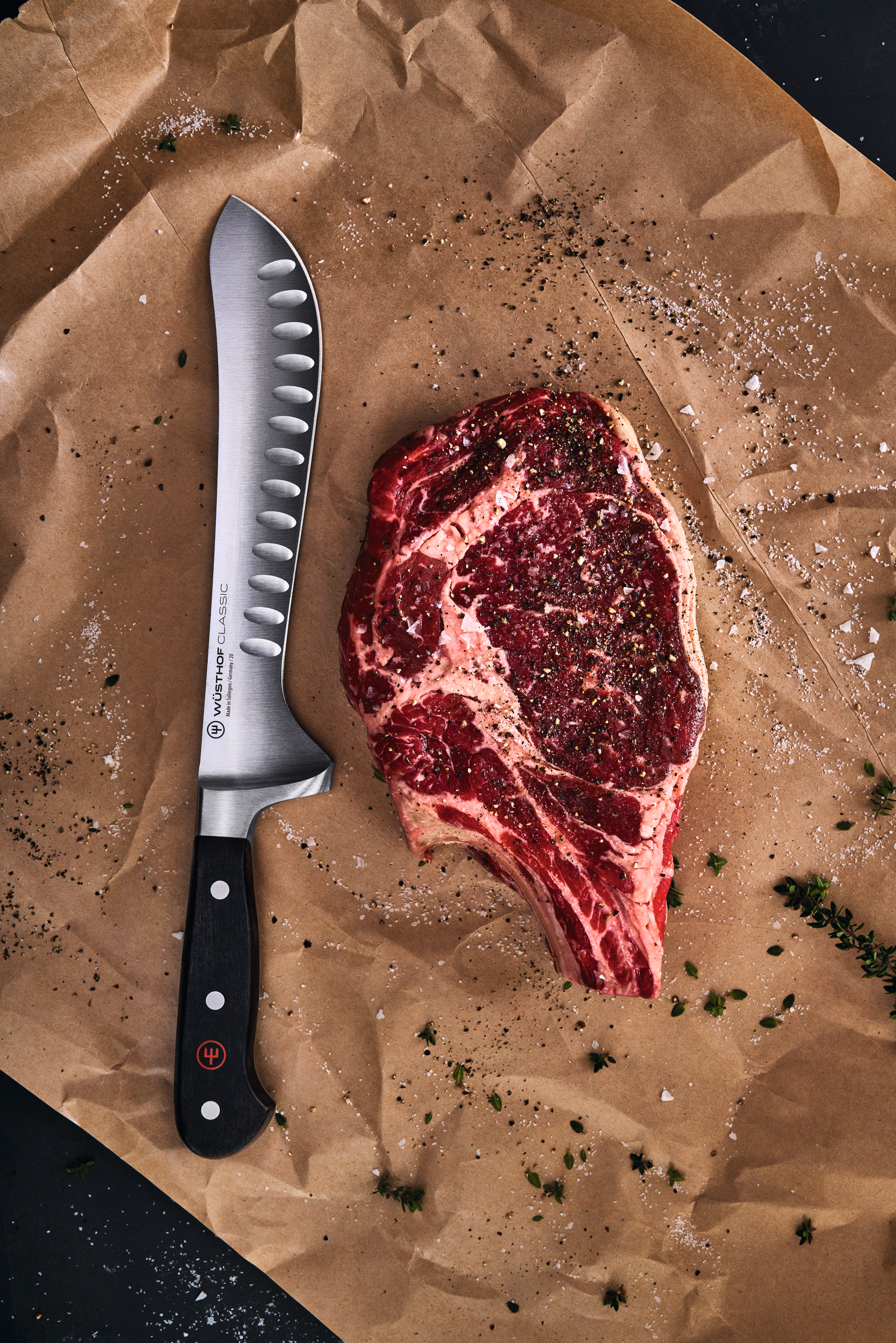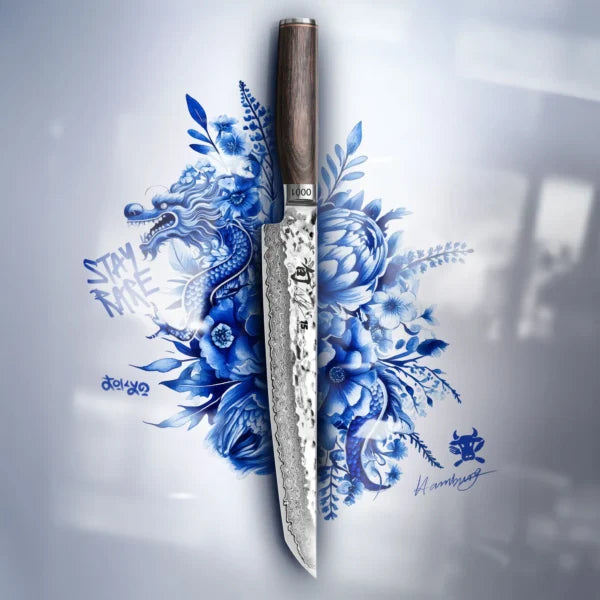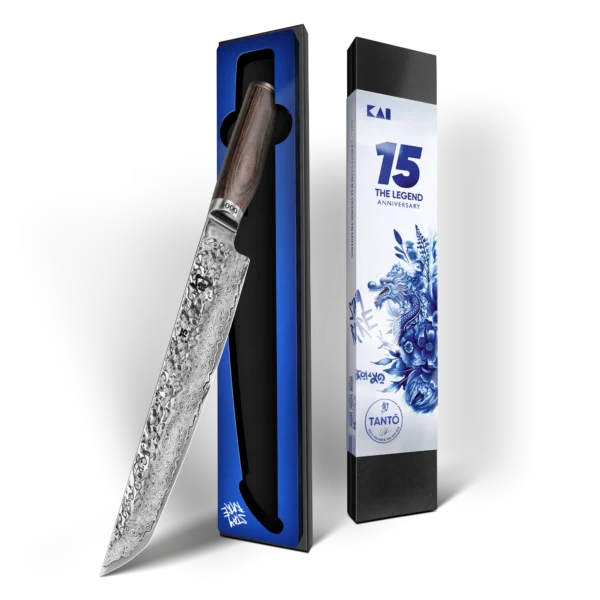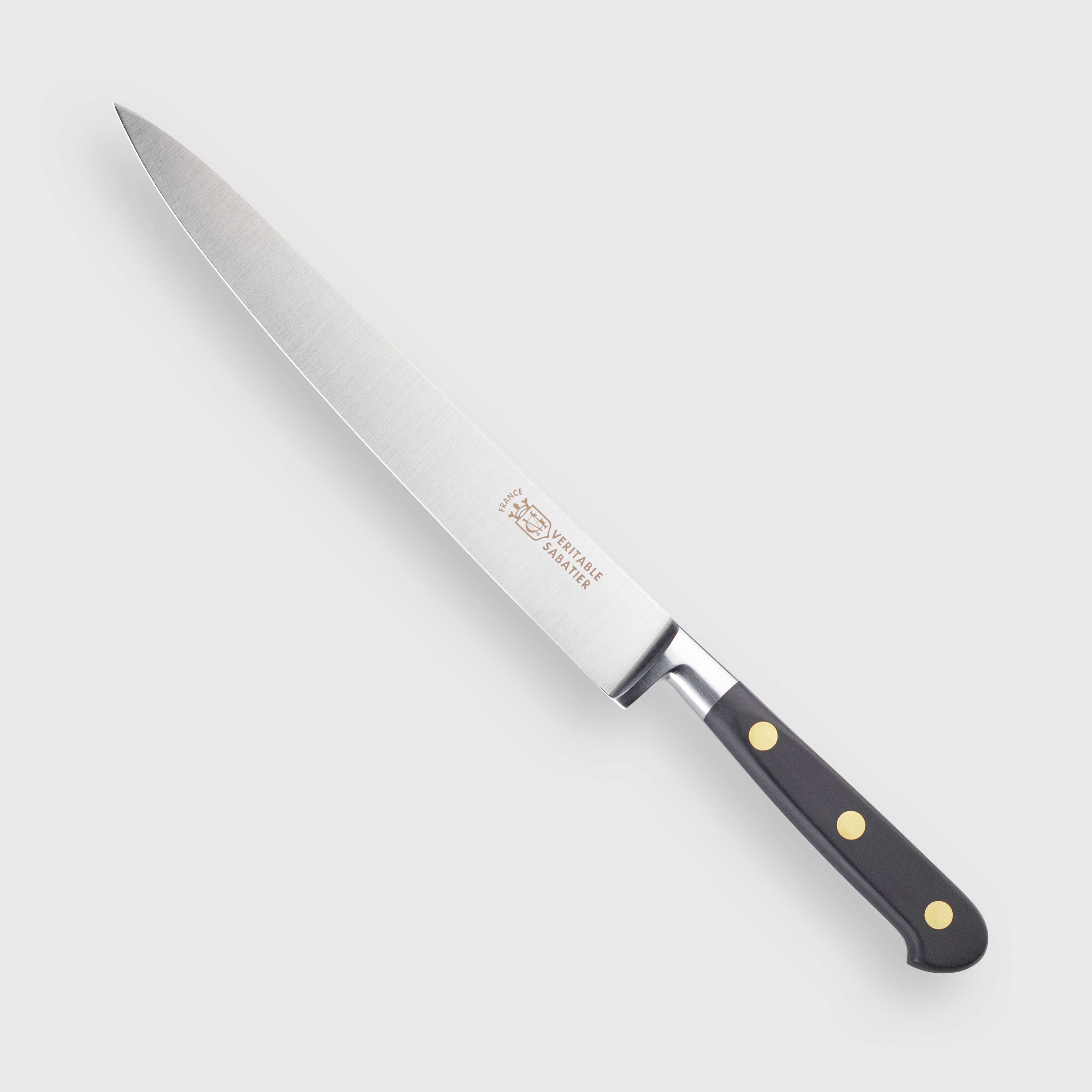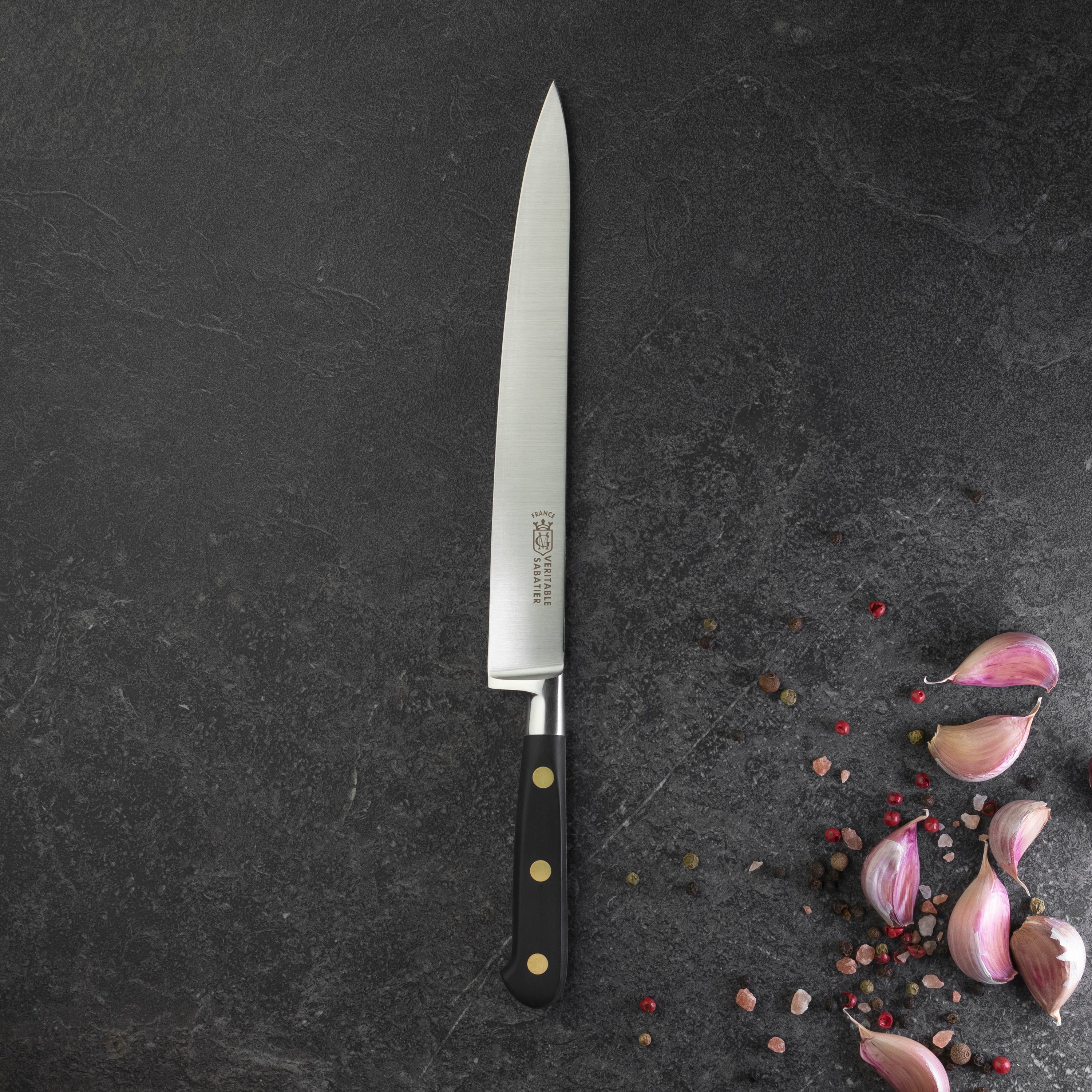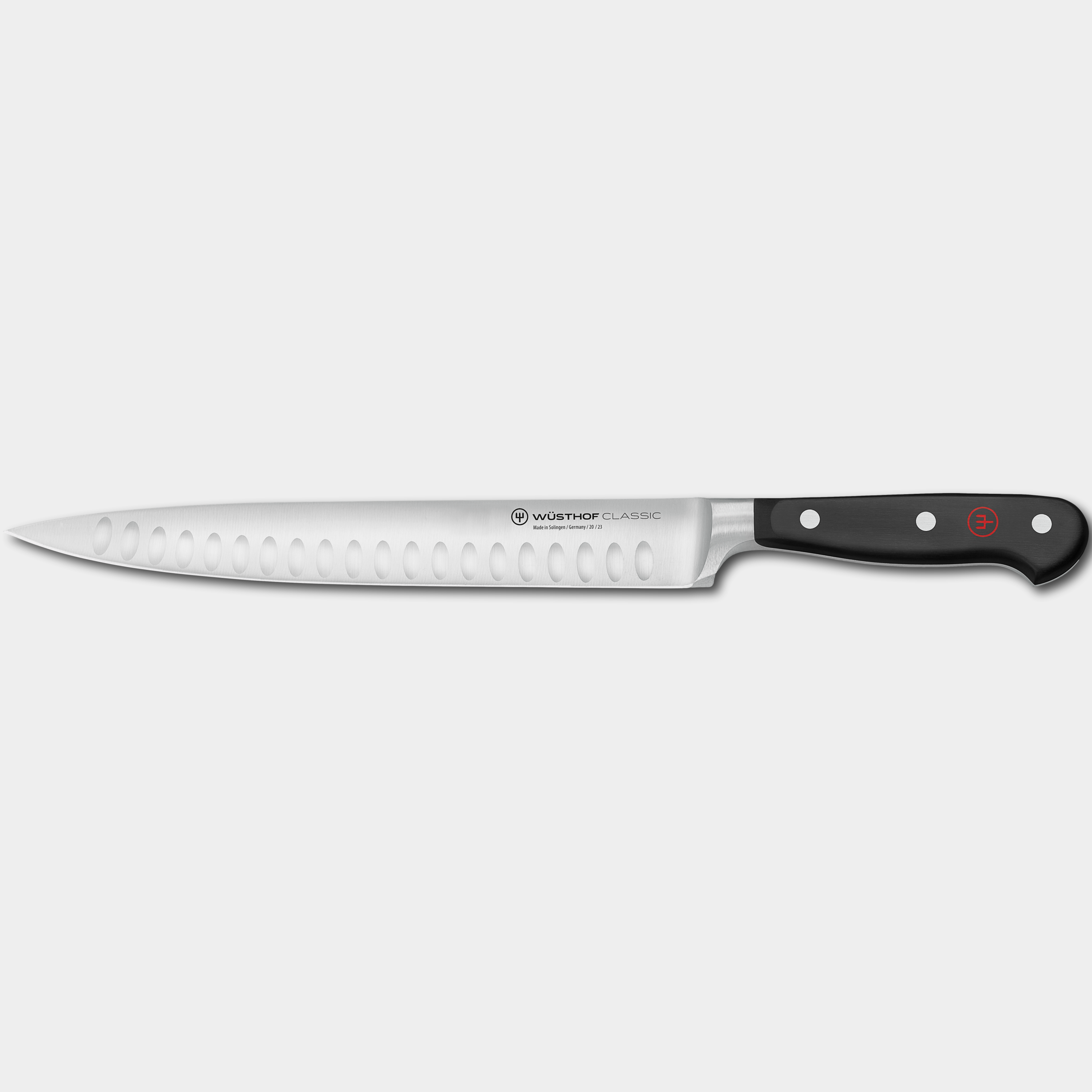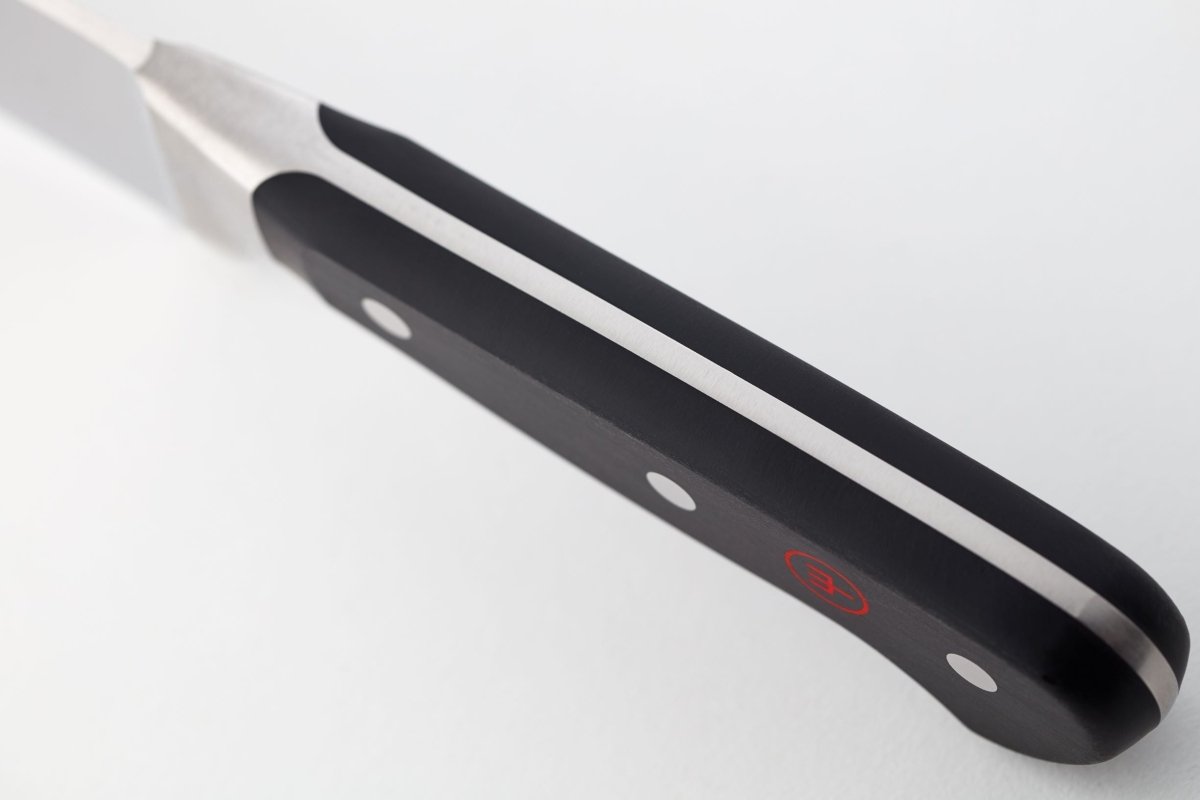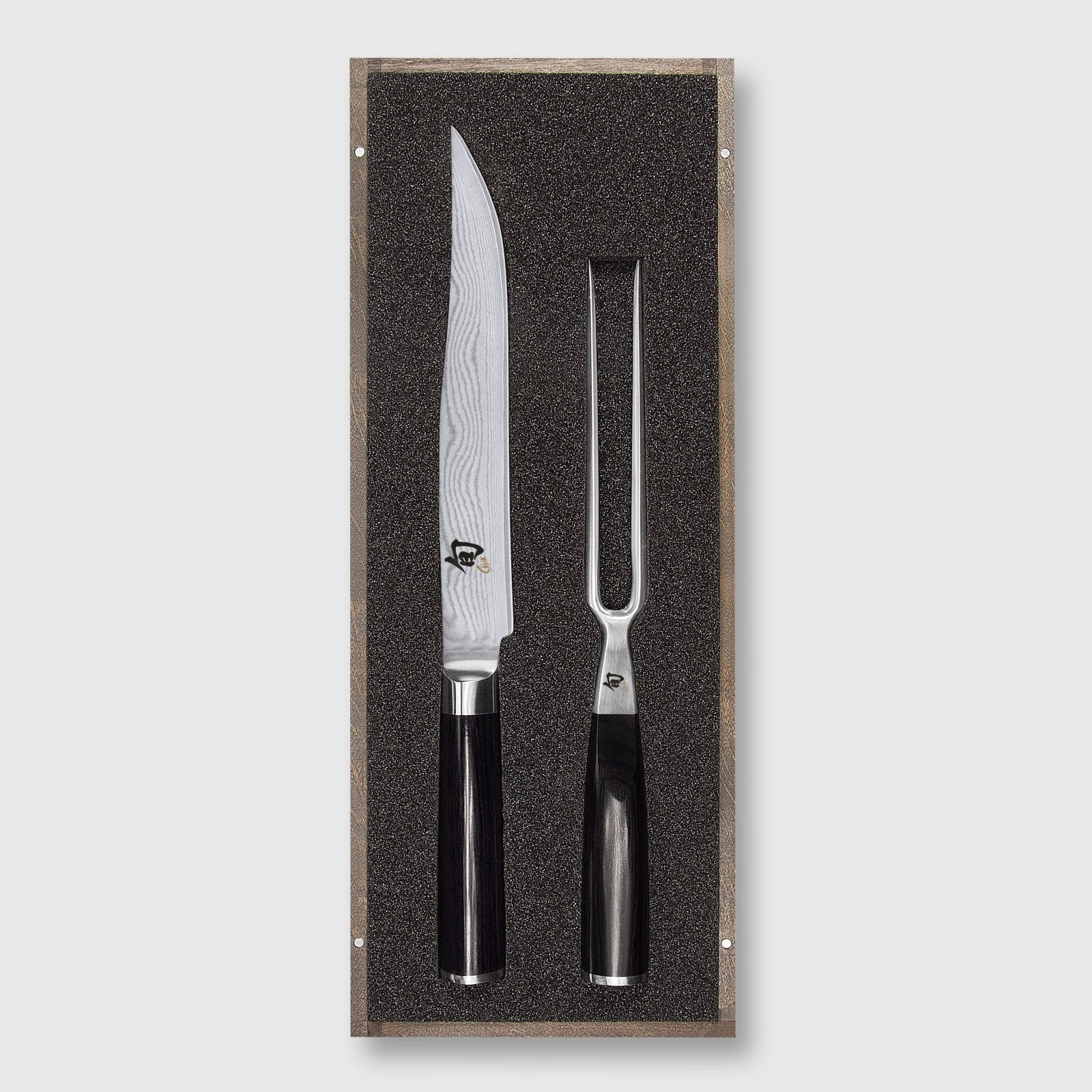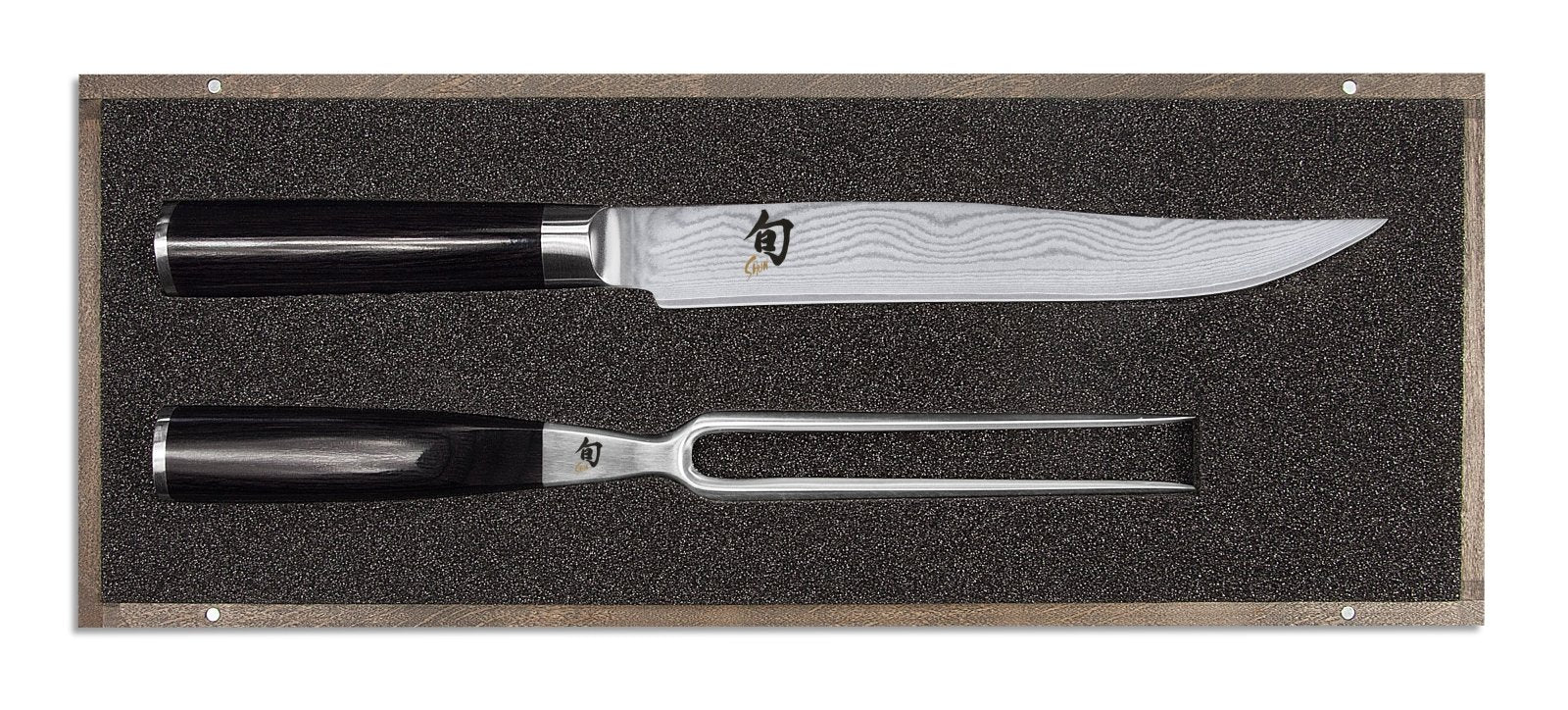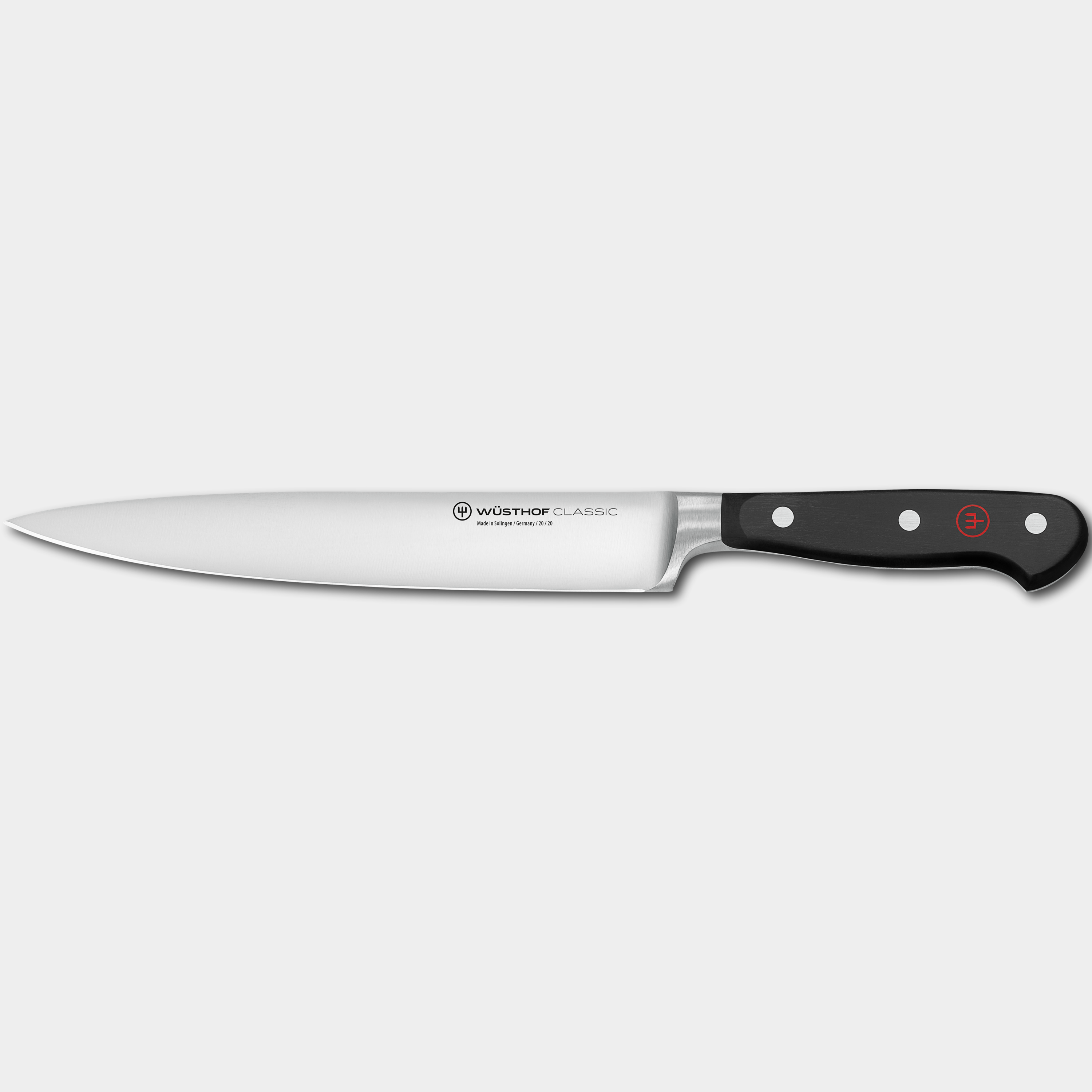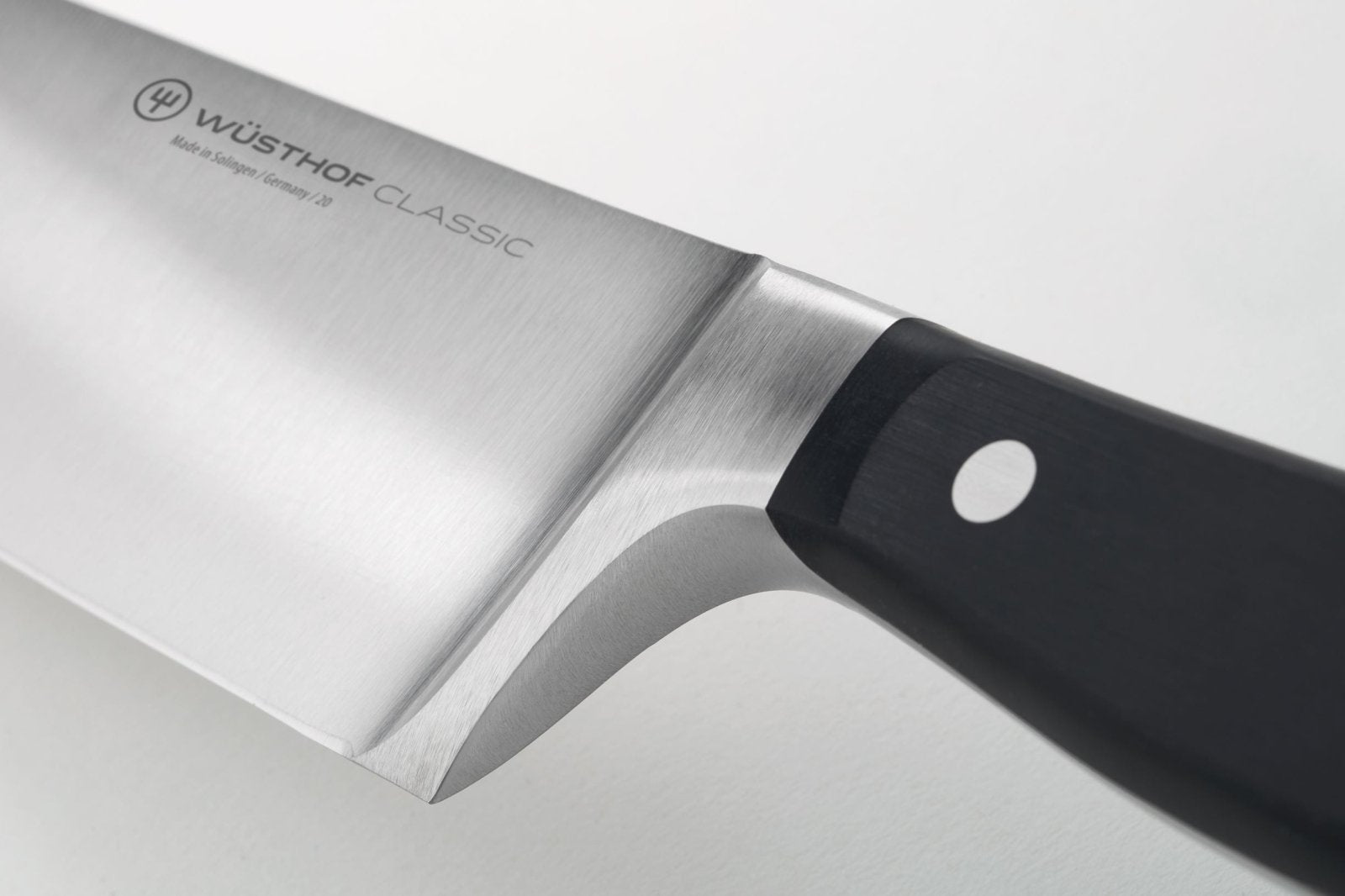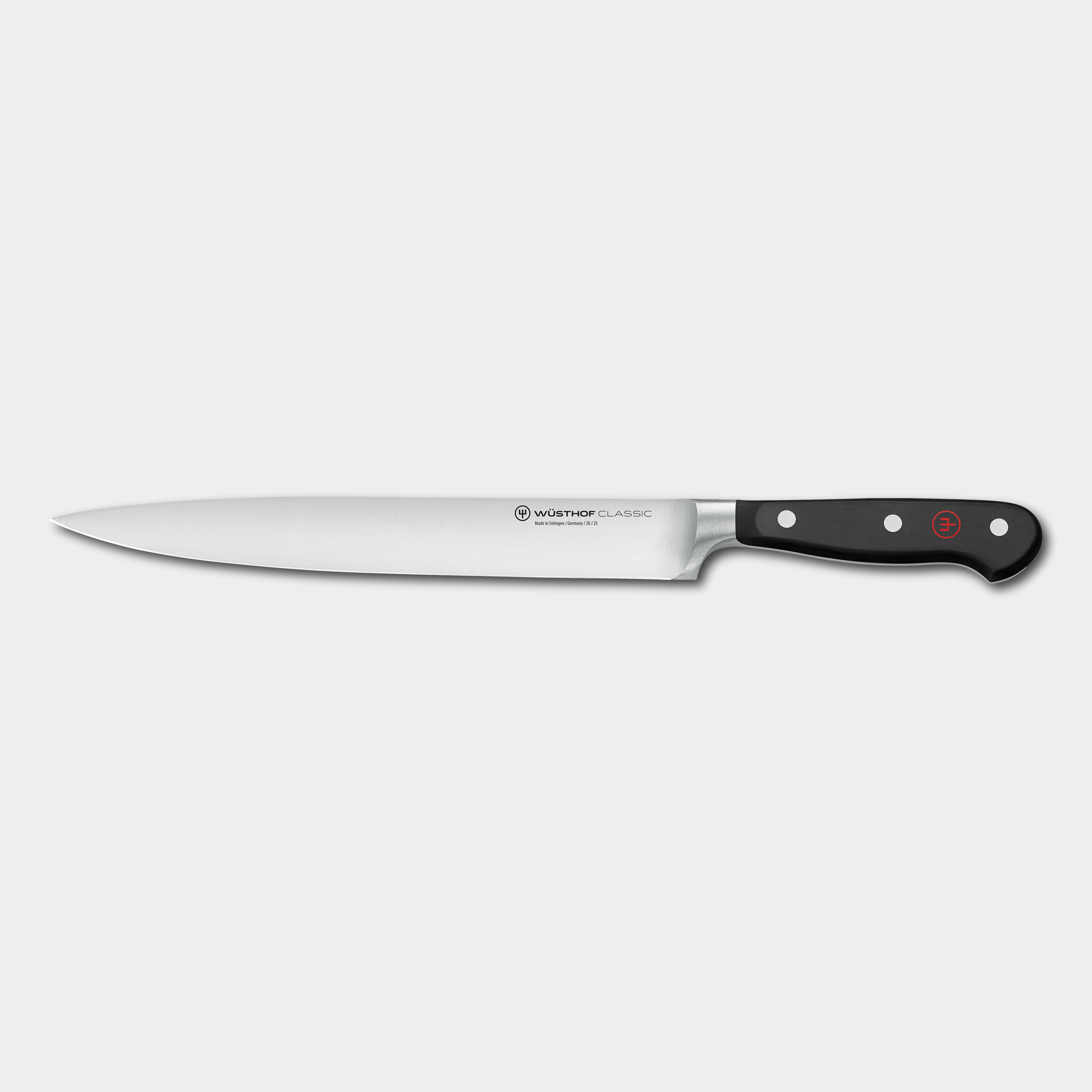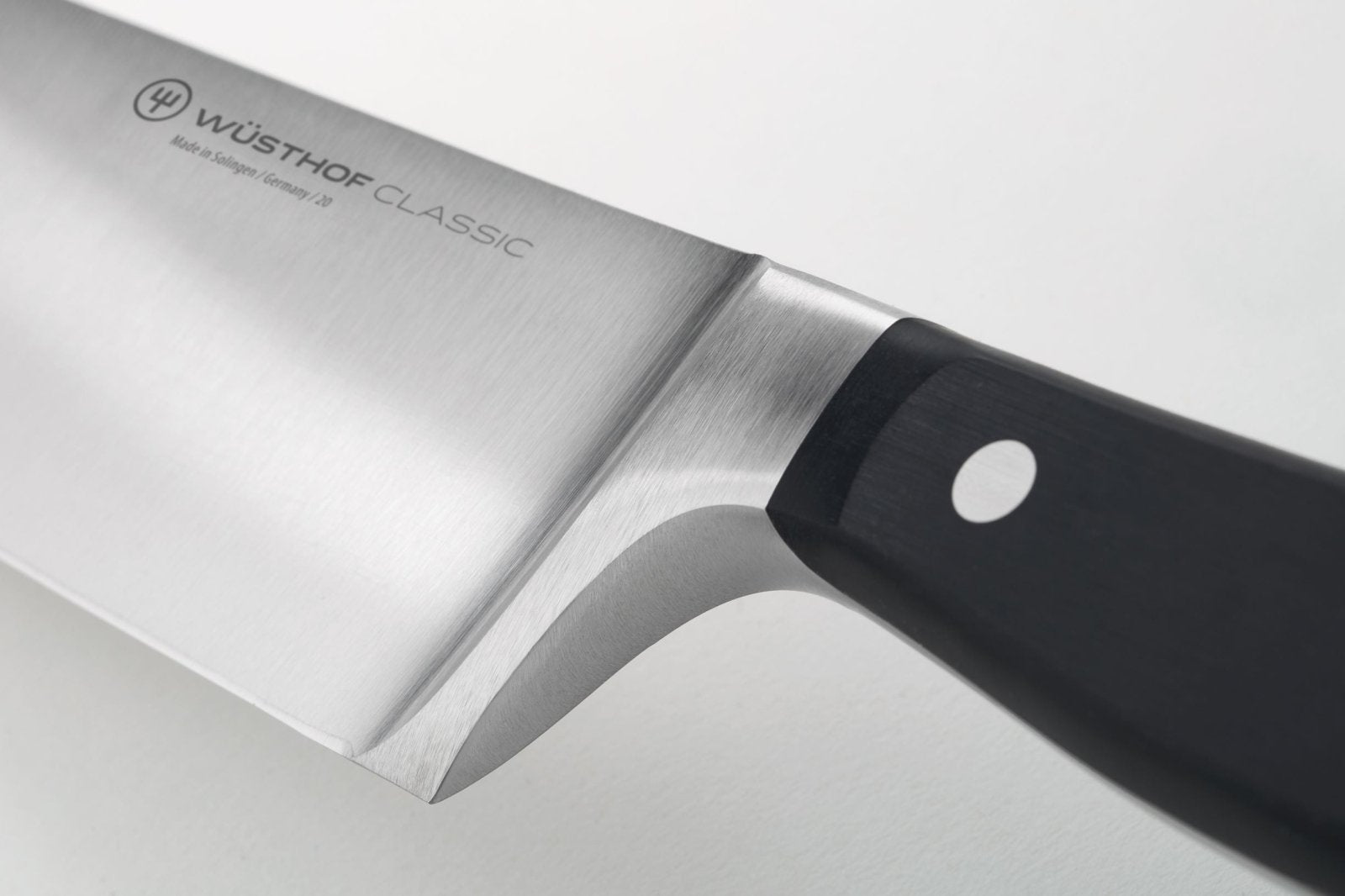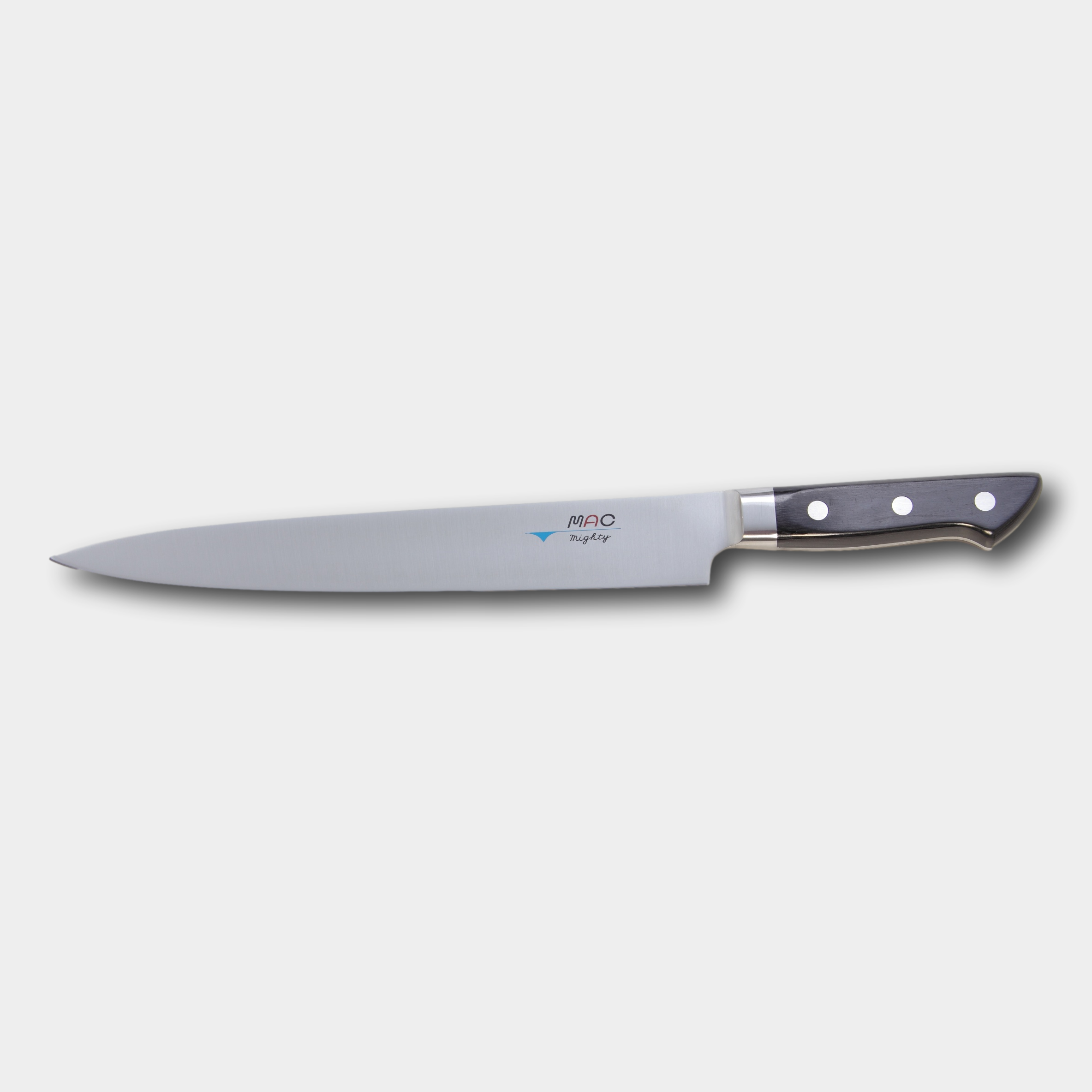
Carving & Slicing Knives
THE PERFECT SLICE EVERYTIME
At The Cotswold Knife Company, we are proud to stock a wide range of carving knives and sets from some of the world’s most respected brands, including Robert Welch, Wüsthof, Zwilling, Kai, and more. Carving knives are designed with long, slender blades, perfect for making precise, clean cuts through large pieces of cooked meat like roasts, turkey, or ham. Our selection is curated to ensure that each knife meets the highest standards of quality and craftsmanship, offering both professional chefs and home cooks the tools they need to slice meats effortlessly and with precision.
As a trusted stockist, we focus on providing carving knives that combine balance, sharpness, and comfort to enhance your carving experience. Whether you're preparing for a family feast or need a reliable carving knife for regular use, our collection has you covered.
Renowned Brands: Featuring top names like Robert Welch, Wüsthof, Zwilling, Kai, and more.
Express Delivery: If ordered before 2 pm, we will dispatch it the same working day. Express delivery is available at the checkout.
UK Support: Talk to us, not a robot; we can advise and process your order over the phone.
FAQs
When choosing the right carving knife online, focus on these key factors to help guide your decision:
- Blade Length: Opt for a knife with a blade length of 8 to 14 inches. A longer blade (10-12 inches) is ideal for large cuts like roasts or turkeys, while a shorter blade works well for smaller cuts like chicken breasts.
- Blade Flexibility: Look for a knife that offers a good balance of flexibility. A slightly flexible blade allows for precise, thin slices, but it should also be sturdy enough to handle dense meats without bending excessively.
- Blade Shape: A narrow blade that tapers to a point is great for controlled cutting around bones and joints. If you’re cutting tougher meats, a serrated edge might be helpful, but a straight-edged blade will generally give you smoother, cleaner slices.
- Material: Choose high-quality stainless steel or high-carbon stainless steel for the blade. These materials ensure sharpness, durability, and resistance to rust, while also retaining their edge longer between sharpening.
- Handle Comfort: Look for handles described as ergonomic or non-slip, often made of wood, plastic, or rubber. Reviews can be a great indicator of how comfortable and secure the knife feels in the hand during use but please note that everyone's grip preference will differ.
- Balance and Weight: High-quality carving knives are typically well-balanced, with a lightweight design that makes them easier to manoeuvre. Look for knives from reputable brands that emphasize a balanced design, which will give you better control when slicing.
- Purpose: Consider the main use of the carving knife. If you frequently carve larger meats like roasts or hams, go for a longer, narrow blade. For more delicate tasks like poultry or fish, a slightly shorter, more flexible knife may be the better option.
Maintaining your knives involves several essential practices to ensure they stay sharp, durable, and in top condition:
- Cleaning: Always wash your knives by hand with warm water and mild detergent immediately after use. It's important to avoid using the dishwasher, as the harsh environment can damage both the blade and the handle over time. After washing, dry the knives completely with a soft cloth to prevent any rust formation.
- Honing: Regular honing is key to keeping your knives sharp and maintaining their edge. Use a honing steel before or after each use to realign the blade's edge. Hold the steel vertically and gently slide the knife down and across the steel at a 20-degree angle.
- Sharpening: In addition to regular honing, your knives will need periodic sharpening, typically once or twice a year depending on how frequently you use them. You can sharpen your knives using a whetstone, a handheld sharpener, or opt for professional sharpening services.
- Storage: Proper storage is crucial for the longevity of your knives. Store your knives in a knife block, on a magnetic strip, or within protective sheaths. This not only prevents the blades from dulling but also helps avoid accidents. Storing knives in a drawer is not recommended, as they can easily get damaged.
- Cutting Surface: To maintain the sharpness of your knife edges, always use wooden or plastic cutting boards. Cutting on hard surfaces like glass, metal, or stone can quickly dull your knives.
- Avoid Misuse: Remember that these knives are specifically designed for cutting food. Avoid using them for any non-food related tasks, as this can damage the blade.
- Handle with Care: Always be mindful of the knife's balance and handle it with care. Avoid dropping or carelessly tossing your knives, as this can lead to damage to both the blade and the handle.
Shop at Cotswold Knife Company with confidence, knowing we are a verified stockist of all the knives we stock.
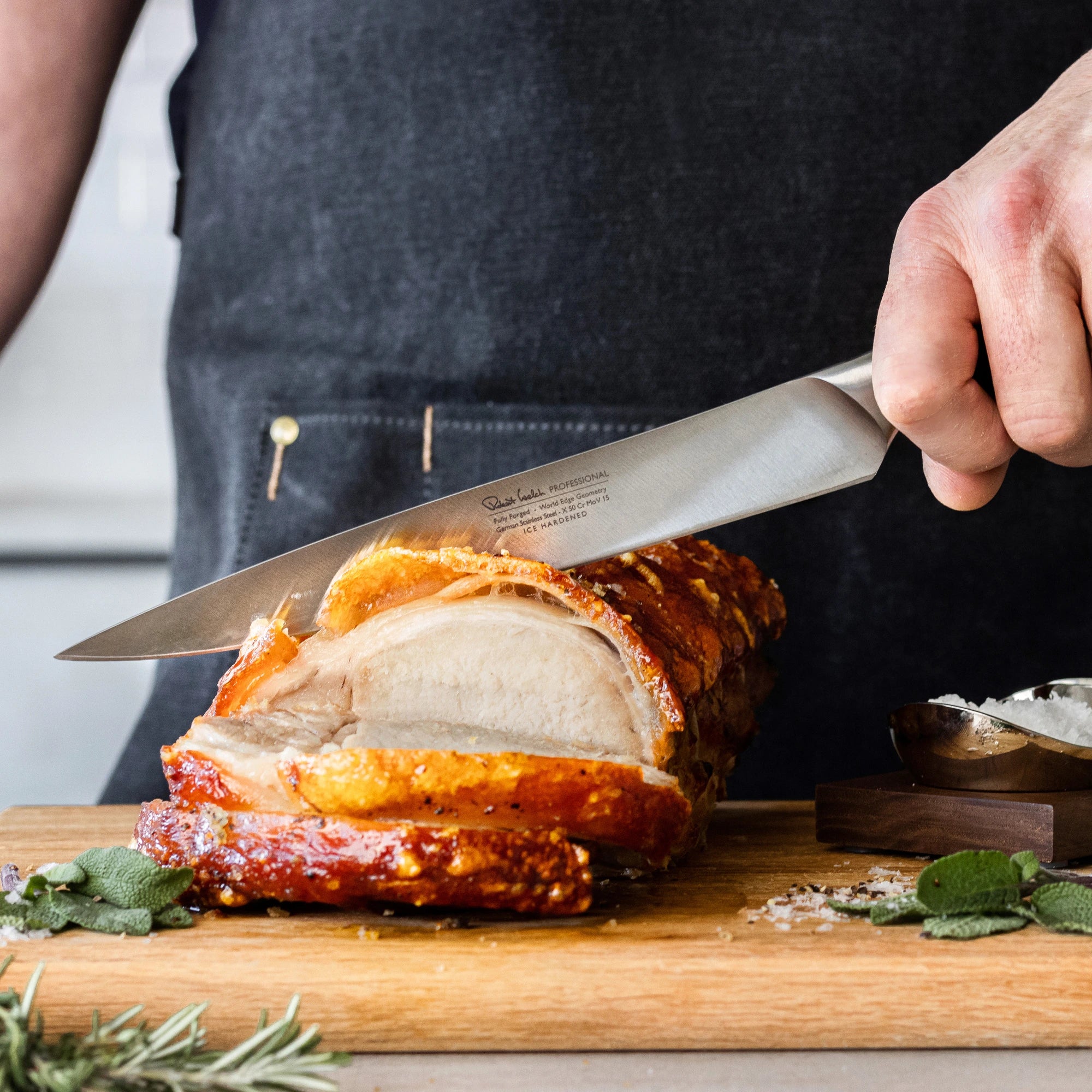
Our Full Guide to Carving Knives
The Cotswold Knife Co
Whether you’re preparing a holiday roast or simply want cleaner, more precise slices at the dinner table, this guide has you covered. Learn what sets carving knives apart, get tips on choosing the right one for your needs, and pick up practical techniques to achieve smooth, even cuts every time.

